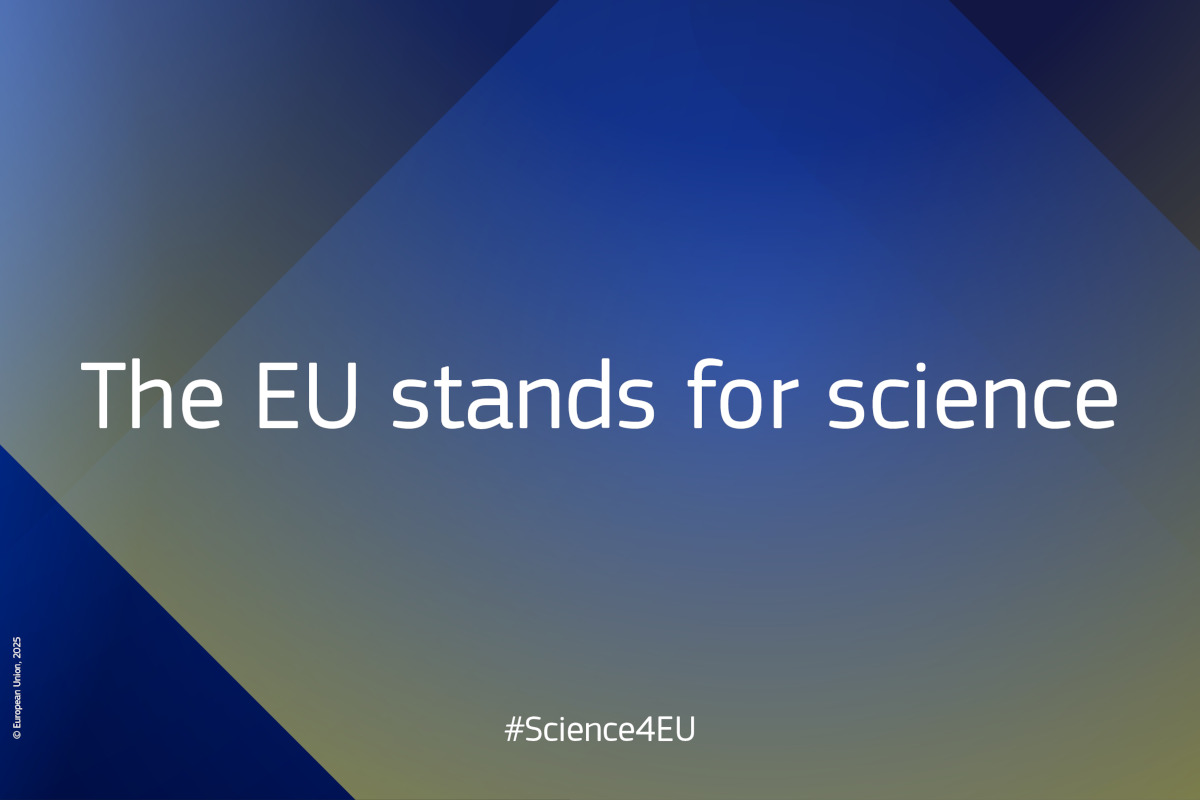As Europe prepares for the leap to 6G, researchers, policymakers and citizens are working together to make sure that the next digital revolution is not just faster, but also ethical, sustainable and inclusive.
Special series

Science4EU
The Science4EU campaign shows how the EU stands for science. It shines a spotlight on the scientists, researchers, and innovators working with EU support to improve our lives and shape a better future for everyone.
Do you also stand for science?
Podcast
Media AV Portal Audio
More stories

Deep under the Mediterranean, scientists have recorded the highest-energy neutrino ever detected. Now they are working out what this elusive particle could reveal about the universe we live in.
Most popular
-
1
-
2By Jonathan O’Callaghan
-
3By Gareth Willmer
-
4
-
5By MICHAELA NESVAROVA
Top videos
Turning undersea cables into a global natural hazard and environmental monitoring system
5 November 2025
New malaria vaccine offers hope for mothers and babies across Africa
3 November 2025
Past articles
Professor Dirk Verellen, director of the medical physics group at the Medical Faculty of the Free University of Brussels, outlines his vision on the future of radiotherapy in Europe.
Each Autumn, just before the announcement in Stockholm of the genuine Nobel Prize laureates, a band of merry men at Harvard University distribute the ‘Ig Nobel Prizes’. These awards recognise real research work that make people laugh… and then think.
A carry-around device or implant to predict or prevent seizures could be life changing for millions of people with epilepsy.
Our food is directly influenced by the ground on which we stand. A group of European geologists have put together their very own cookbook to show us why.
High-tech 3D models of rock formations deep underground should reveal that Europe has vast concealed ore deposits, researchers believe, helping to ease Europe's dependency on imported metal.
Innovative new EU-funded research aims to help tackle an alarming decline in Europe's bee population. At Nottingham Trent University in the UK researchers are developing new methods to transfer wirelessly information about the health of the hive to the beekeeper.
Cars could brake in a split-second when faced with a possible collision, if a robotics breakthrough inspired by locusts delivers on its promise.
A prosthetic hand no longer needs to be just a piece of nicely moulded plastic – it can be connected and reactive, and even respond to commands directly issued by the brain.
With Europe’s population living longer, the quest for new Alzheimer’s disease (AD) therapies has never been more urgent. Researchers hope that figuring out which genes and environmental factors trigger the illness will deliver drugs that prevent serious memory loss.
People who suffer from lower limb paralysis may one day walk again thanks to the EU-funded project, MINDWALKER.
CERN, the European Organization for Nuclear Research, adopted on 30 May a new global strategy for particle physics. The continuing exploitation of the Large Hadron Collider is one of its priorities. But the research body is also proposing to foster cooperation with the US and Japan on other initiatives.
More than half a century after CERN was set up to smash and measure the building blocks of the Universe, it's discovered several new particles, won some Nobel prizes – and invented the world wide web.
The deadly tornado that hit the city of Moore near Oklahoma City in the US on 20 May dramatically highlighted such extreme weather events and their dangers. In Europe, the same phenomenon is under close scrutiny.
Software that can read your fingerprint from a touch-screen phone and 3D face recognition could replace internet passwords and pin numbers in five years, according to an EU cyber security research expert.
It sounds like science fiction, but European researchers are starting work on building a model of a fully functioning human brain after winning one of the biggest research grants ever awarded – and they hope the device will help them tackle diseases like Alzheimer’s and Parkinson’s.
With the ‘Destination Europe’ initiative, the European Union is trying to attract new brains from around the world. The message is clear: research and innovation culture in Europe is vibrant and exciting. Alan Leshner, Chief Executive Officer of the American Association for the Advancement of Science (AAAS), agrees. ‘Europe is developing a coherent research area,’ he said during the annual meeting of the AAAS. ‘And good science anywhere is good for science everywhere.’
Early shoots for the bioeconomy have sprung up through innovative ideas in completely different businesses. And, at the same time, they raise some legislative initiatives.
Dr Conor O’Carroll, Research Director at the Irish Universities Association, argues that the Scientific Visa pioneered by France and implemented as a European Directive in 2005 is in itself a really effective method for attracting researchers to Europe.
Denmark’s best-preserved 17th century wreck may have gone completely unnoticed if it hadn’t been lying close to the path of a construction project.
Imagine being able to know ahead of time if you will have to wait for your bus due to road works, or if your train is running behind schedule.






























